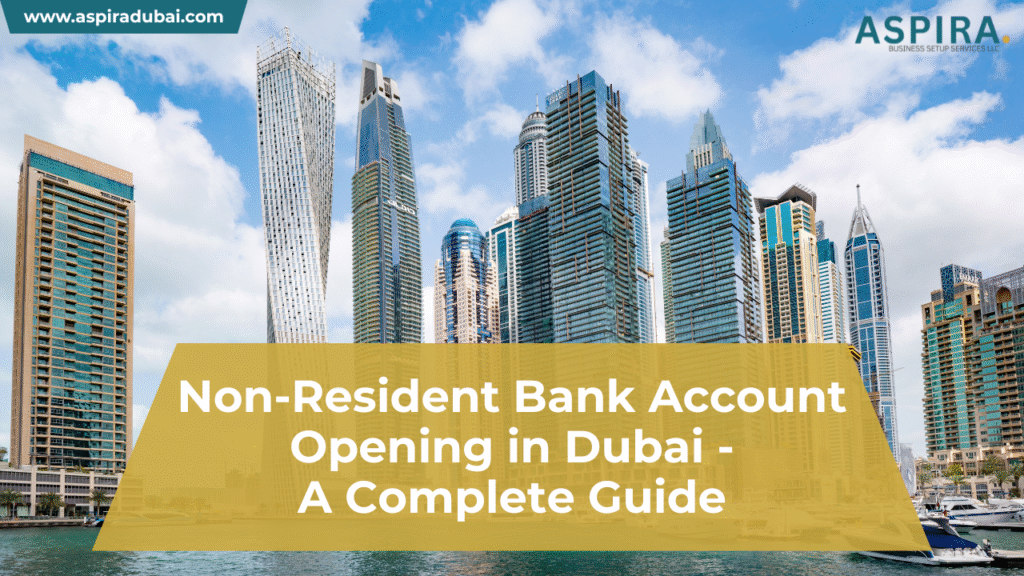Non-Resident Bank Account Opening in Dubai is possible, but the process is slightly more complex compared to residents. Dubai has established itself as one of the world’s most prominent financial hubs, attracting entrepreneurs, investors, expatriates, and high-net-worth individuals from across the globe.
While living in Dubai offers its own advantages, many people who are not residents also wish to access the UAE’s secure and internationally recognized banking system. This is where non-resident bank account opening in Dubai becomes an essential financial step.
Why Dubai Is the Best Place for Non-Resident Banking
Non-residents are increasingly choosing Dubai as their preferred banking destination because of its unmatched financial ecosystem. The Central Bank of the UAE ensures strict regulation, transparency, and security, while Dubai’s global reputation makes it a magnet for international finance.
Key reasons why Dubai stands out for non-resident banking:
- Strong regulation – Ensures compliance, safety, and reliability.
- International credibility – UAE banks are trusted globally, enabling seamless cross-border transactions.
- Multi-currency flexibility – Accounts can be maintained in AED, USD, EUR, GBP, and other major currencies.
- No personal income tax – A powerful advantage for global investors and entrepreneurs.
- Global trade hub – Dubai’s central location connects businesses across continents.
In short, a non-resident bank account Opening in Dubai serves as both a secure savings platform and a gateway to international markets.
(New for 2025): UAE banks are now integrating AI-powered KYC and compliance systems, allowing faster verifications and risk assessments for non-residents — reducing approval times significantly compared to previous years.
Who Can Open a Non-Resident Bank Account in Dubai?
Not everyone qualifies Non-Resident Bank Account Opening in Dubai but banks in Dubai typically cater to:
- Foreign individuals who want to save or invest without relocating.
- Investors exploring the UAE market gradually.
- Offshore companies needing corporate accounts for trade or fund holding.
- International business owners seeking UAE banking credibility.
- Expatriates who previously lived in the UAE and want to maintain financial connections.
Types of Non-Resident Bank Account Opening in Dubai
1. Personal Savings Account
Ideal for individuals managing personal savings.
- No checkbook facilities.
- Debit/ATM card access available.
- Online and mobile banking access.
2. Corporate Bank Account
For foreign or offshore companies conducting international operations.
- Requires company incorporation and activity proof.
- Includes enhanced compliance checks.
- Supports multi-currency transactions.
3. Investment Account
Designed for high-net-worth individuals or companies.
- Enables wealth management and portfolio diversification.
- Access to bonds, mutual funds, and global markets.
(Exclusive insight): Some Dubai banks now offer hybrid non-resident accounts, combining savings and investment facilities under one digital interface — a new feature gaining popularity in 2025.
Requirements & Documentation for Non-Resident Bank Account Opening in Dubai
Opening a non-resident bank account opening in Dubai involves detailed documentation and verification due to strict compliance standards.
For Individuals:
- Passport copy with UAE entry stamp
- Proof of residence in home country (utility bill or bank statement)
- Bank reference letter
- Personal CV or background profile
- Proof of income or source of wealth (salary certificate, business license, or tax return)
For Companies:
- Certificate of Incorporation
- Memorandum & Articles of Association
- Board Resolution
- Trade License (for Free Zone or mainland registration)
Note: Additional documents may be requested depending on nationality, business type, or risk profile.
Process of Non-Resident Bank Account Opening in Dubai
1. Choose the Right Bank
Top choices include Emirates NBD, ADCB, Mashreq, RAKBANK, HSBC, and Standard Chartered.
Each bank has unique minimum balance and documentation requirements.
2. Submit Application & Documents
Applications can often begin online or be submitted directly at a branch.
3. Compliance & KYC Checks
Banks conduct detailed background checks to verify identity, source of funds, and intended account usage. The UAE enforces strict AML (Anti-Money Laundering) laws.
4. Approval & Account Activation
Approval usually takes 1–3 weeks, depending on complexity and nationality.
(Latest development): Certain banks within the Dubai International Financial Centre (DIFC) now allow video-based remote onboarding, enabling non-residents to open accounts without a physical visit if they meet eligibility standards.
Benefits of a Non-Resident Bank Account opening in Dubai
- Global financial credibility for both personal and business transactions.
- Safe and stable banking environment governed by the Central Bank.
- Multi-currency convenience for international payments.
- No income or capital gains tax, maximizing financial efficiency.
- Digital banking with 24/7 global access.
- Gateway to UAE investments in real estate, stocks, and startups.
Challenges Non-Residents May Face
- Higher minimum balance requirements (AED 25,000–100,000+).
- Limited facilities like checkbooks (for savings accounts).
- Strict compliance procedures.
- Longer approval times compared to residents.
To overcome these, many individuals and corporations use professional business setup consultants in Dubai who assist in document preparation, communication with banks, and smooth approvals.
Connected Authorities & Financial Ecosystem
The following entities are integral to Non-Resident Bank Account Opening in Dubai:
- Central Bank of the UAE – Main regulatory body.
- Dubai International Financial Centre (DIFC) – Hub for private and investment banking.
- Financial Services Regulatory Authority (FSRA) – Oversees Abu Dhabi Global Market (ADGM).
- Dubai Chamber of Commerce – Supports business verification.
- AML & Compliance Units – Monitor KYC and anti-money-laundering protocols.
Industries commonly tied to non-resident banking include:
Real Estate • Import–Export & Trading • FinTech • Offshore Companies • Family Offices & Wealth Management.
FAQs on Non-Resident Bank Accounts in Dubai
Q1. Can a tourist open a bank account in Dubai?
No. Tourists cannot open accounts, but non-residents with valid documents and business interests can.
Q2. What is the minimum balance requirement?
Typically between AED 25,000 – 100,000, depending on the bank and account type.
Q3. Can I open a UAE bank account remotely as a non-resident?
Some banks now allow remote onboarding via video verification.
Q4. Which banks are best for non-residents?
Emirates NBD, ADCB, Mashreq, HSBC, RAKBANK, and Standard Chartered remain top choices.
Q5. How long does the process take?
Usually between 1–3 weeks, depending on the bank’s compliance checks.
Conclusion
Non-Resident Bank Account Opening in Dubai is a strategic financial move that grants international investors access to one of the world’s safest, most advanced banking systems. With innovation, strong regulation, and tax efficiency, Dubai continues to redefine global offshore banking.
Whether you are securing your wealth, expanding your business, or seeking global financial stability — opening a bank account in Dubai as a non-resident is an opportunity worth pursuing.
Contact Us
Looking to open a non-resident bank account in Dubai quickly and hassle-free?
Our team provides end-to-end support — from choosing the right bank to preparing documents and ensuring smooth approval.
📞 Call us: +971 56 406 6546
📧 Email: info@aspiradubai.com
🌐 Visit: www.aspiradubai.com









